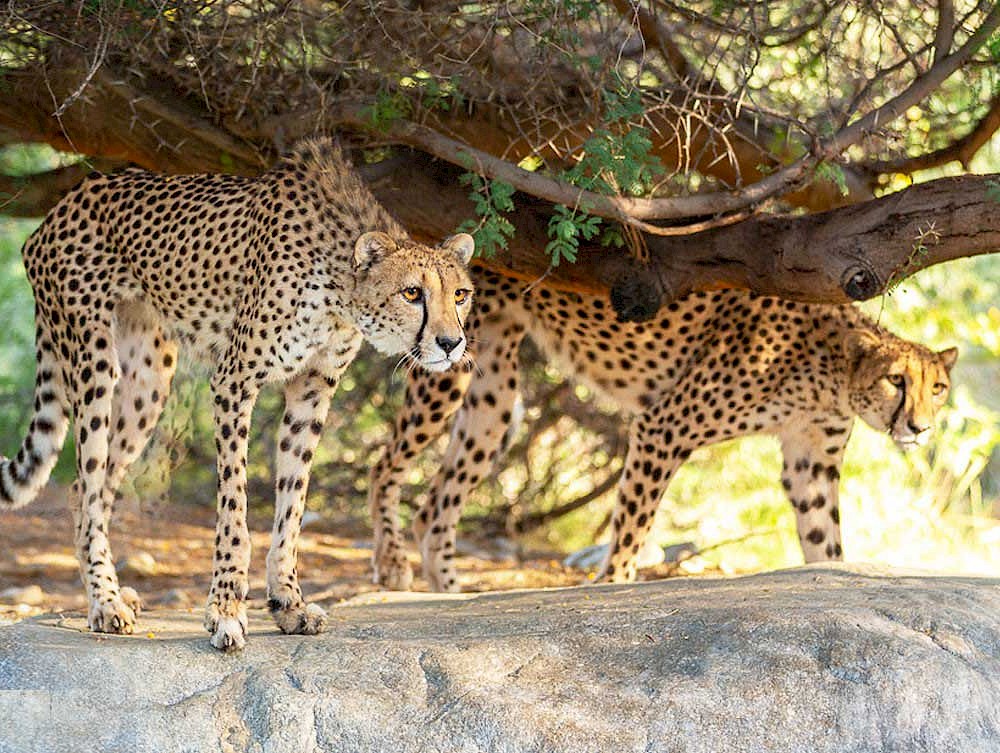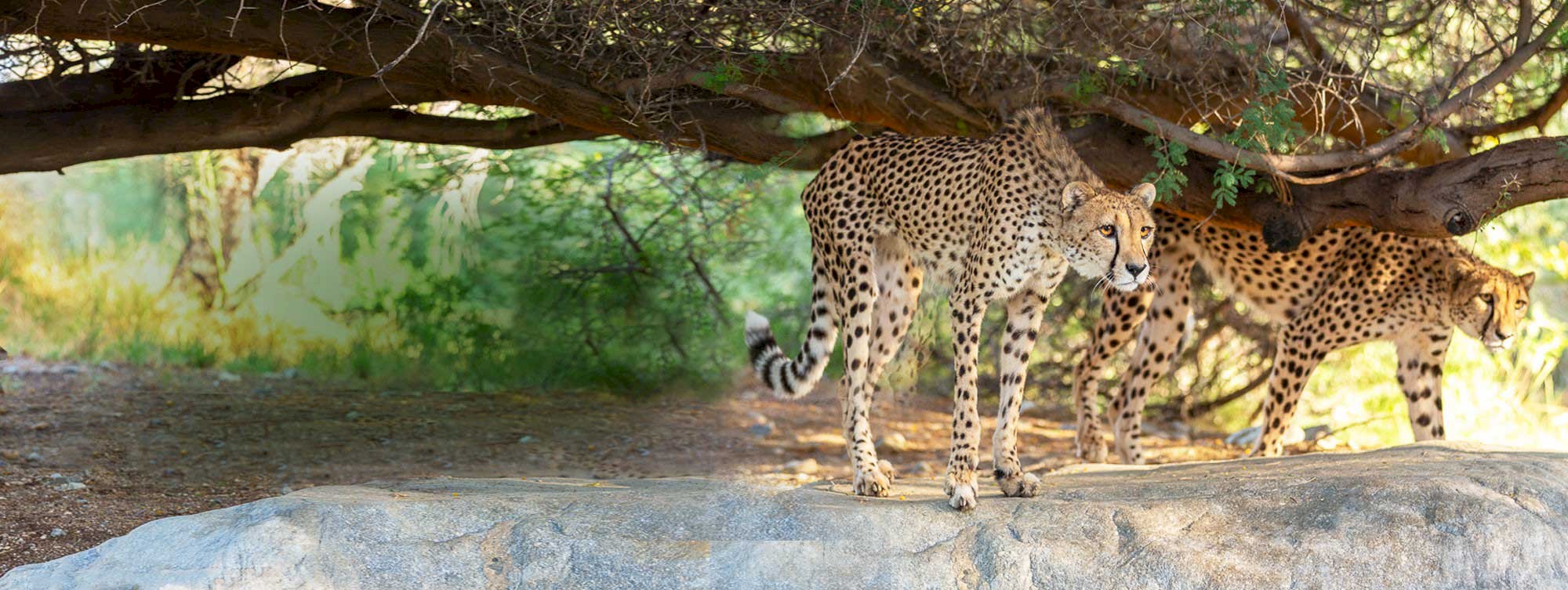World Rhino Day
September 20, 2021
Here at The Living Desert, we are really rallying around restoring rhinos! As you may know, all five species of rhino that live around the world are threatened with extinction. Adding all rhinos that exist together results in fewer than 30,000 rhino in the entire world - and over 20,000 of them are the white rhino that are found in Africa. Poaching for their horn is the main reason why all five species are threatened with extinction, for tragic and ignorant reasons such as status symbols and for ineffective medical “cures”.
Now, with World Rhino Day coming up on September 22, we wanted to take this opportunity to detail some of the many ways The Living Desert is working to ensure that African rhinos are safe in perpetuity. Our major focus has been to help save African black rhino and white rhino.
Our long-standing collaboration with the unarmed, all-women Black Mambas Anti-Poaching Unit in South Africa, has reduced rhino poaching in the areas where they patrol by almost 70%, and have reduced poaching of all large animals overall by as much as 86%!
Recently, we conducted did a series of surveys to better understand the social impact of the Mambas. We learned that where the Mambas also had a youth environmental education program, that community was much more supportive of conservation and of wildlife.
The Mambas have now restructured their program to include education programs in every community near their Nature Reserve. As I write this, I am on a plane en route to meet with them in South Africa and plan a second phase of this much valued evaluation approach, one we will start in early 2022. This research project and the changes it triggered is among the largest impacts we have made on conservation.
Second, the new Rhino Savanna is set to debut very soon – the biggest expansion that The Living Desert has experienced in many decades! We’ll be welcoming Jaali and Nia, both black rhinos, to our grounds this fall and premiering the new Rhino Savanna the weekend of November 12. The four-acre Rhino Savanna will be home to Jaali and Nia, along with 12 other species who will coexist with them on our beautiful new grounds. This new, state-of-the-art habitat will highlight our rhino conservation efforts and the many things that we all can do to help conserve these iconic species. The hope is that in the future, as this pair of black rhino matures, they will breed and add to the black rhino numbers in human care.
Last, but most certainly not least, we are hosting our second annual International Desert Conservation Summit (IDCS) at The Living Desert virtually - Saturday, November 20! This year’s theme is “Restoring Rhinos”.
Although, we had originally planned to have 10 of the world’s leading rhino conservationists travel to Palm Desert to share their successes and challenges involved in conserving rhinos in Africa. Instead, these innovative speakers will virtually join us from South Africa, Kenya, and the United States and you’re invited to join! Check out www.desertconservationsummit.org for more information and to register today.
We at The Living Desert are leaders in rhino conservation, and we look forward to getting to enlist you in our rhino conservation crash! A group of rhinos is appropriately called a crash, and with your help, we will crash through the barriers and help Restore Rhinos!
Did You Know...
- There are five species of rhino in the world: two of them are in Africa and three are in Asia. All of them are threatened with extinction due to humans hunting them for their horn.
- Rhino horn has no medical value, despite several research studies that strove to test this possibility.
- Most trade in rhino horn is because it is perceived to be a luxury item, and people wish to use that to improve how people perceive them.
- You can help reduce rhino poaching by working against the trade in rhino horn here in the US! We are one of the largest consumers of rhino horn behind only Thailand, Vietnam, and China, but many accounts. Talk about how terrible it is to kill a work of art like a rhino for no real benefit.









